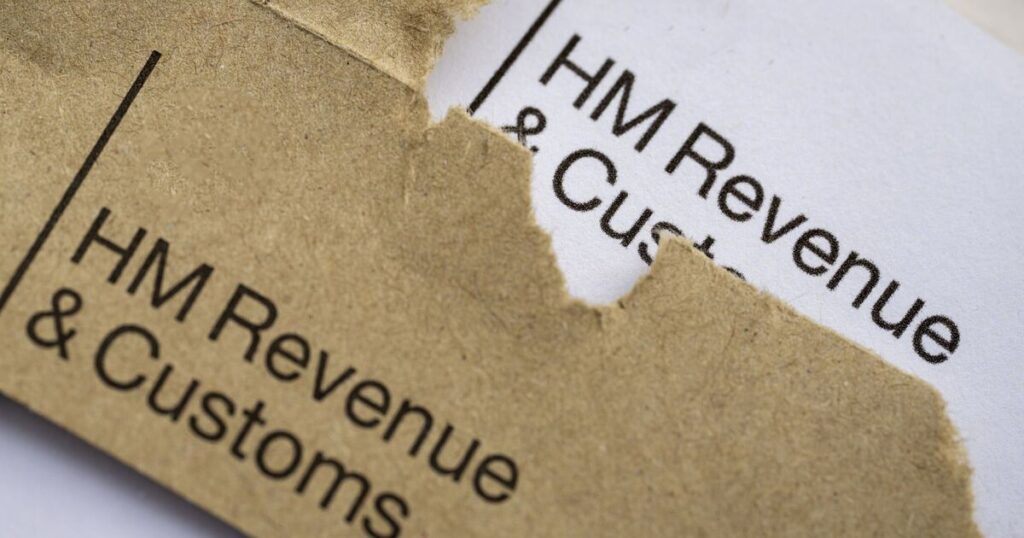
Anyone earning more than £1,000 from a ‘side hustle’ faces being landed with a tax bill and must inform His Majesty’s Revenus and Customs (HMRC) about extra earnings. Strict tax rules apply if you’re making extra cash outside of your main job as HMRC classes this as ‘trading’. This income can be from things like buying or making things to sell online, renting out property, or creating sponsored social media content, and if you make more than £1,000 in a year from this trading then you’re required to tell HMRC as you may need to pay tax on what you’ve earned.
Everyone in the UK has a tax-free trading allowance of £1,000 additional income outside of their regular employment, so if you earn less than this amount from your side hustle in a tax year you don’t need to tell HMRC. But those earning above the £1,000 threshold must declare this by registering as self-employed and submitting a Self Assessment tax return.
HMRC says: “If you earn £1,000 or less a year from all the money you make from trading, you don’t pay any tax on it. Earn over £1,000 a year from trading? You’ll need to tell HMRC and may need to pay tax on the money you make.”
If you regularly sell goods or provide a service through an online platform, HMRC recommends that you check the guidance about selling online and paying taxes on GOV.UK. A link is also available on the HMRC app in the ‘news’ section under the ‘communication’ tab to help you decide if your activity should be treated as a trade and if you need to complete a Self Assessment tax return.
If you do need to tell HMRC about your additional income and need to pay tax on the money you’ve made, you’ll need to register for Self Assessment by October 5.
HMRC adds: ” Extra earnings are your responsibility to tell HMRC about, not your main employer’s. Income from side hustles isn’t included on your payslip. If you don’t tell HMRC about those extra earnings you might be given a penalty.
“You have a single £1,000 tax-free trading allowance (for each tax year) and anything you earn from different types of side hustle all counts towards this. For example, if you earn £800 from content creation and £500 selling crafts online, that adds up to £1,300 from trading. You would need to tell HMRC and pay tax on this as it’s above the £1,000 trading allowance.
“Firstly, you should check if you need to tell HMRC about additional income. If you do need to pay tax on the money you’ve made from your side hustle, you will need to register for Self Assessment – you will need to do this by 5 October.
“If you don’t pay the right amount of tax, you may get a penalty. And late tax payments can mean the amount of interest you have to pay may grow – so the longer you put off paying, the more you may owe.”
You must pay a late filing fine of £100 if your tax return is up to three months late and this fee can increase even further if it’s later, or if you pay your tax bill late. You’ll also be charged interest on late payments.
You can appeal against a penalty if you have a reasonable excuse that stopped you from meeting the deadline, which can include any of the following:
- your partner or another close relative died shortly before the tax return or payment deadline
- you had an unexpected stay in hospital that prevented you from dealing with your tax affairs
- you had a serious or life-threatening illness
- your computer or software failed just before or while you were preparing your online return
- service issues with HMRC online services
- a fire, flood or theft prevented you from completing your tax return
- postal delays that you could not have predicted
- delays related to a disability or mental illness you have
- you were unaware of or misunderstood your legal obligation
- you relied on someone else to send your return and they did not
HMRC says you must send your tax return or payment as soon as possible after your reasonable excuse is resolved. You cannot blame a cheque being bounced or a failed payment for missing the deadline, or say you submitted it late because HMRC didn’t send you a reminder.
 Latest World Breaking News Online News Portal
Latest World Breaking News Online News Portal






